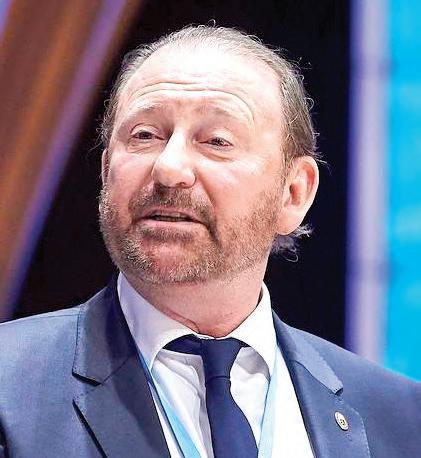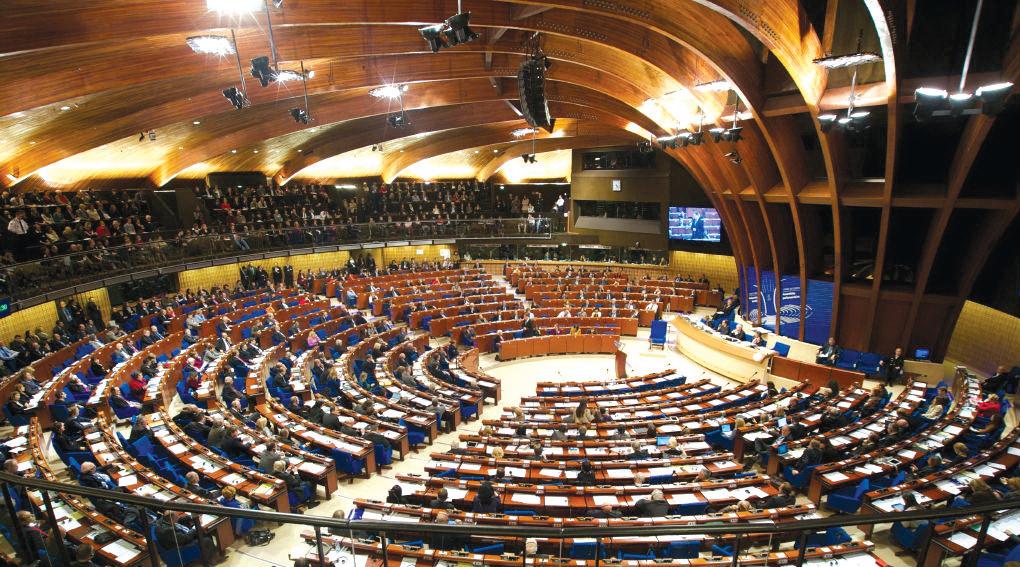
4 minute read
A Europe United by Values, Focused on Results
It’s time for a legal right to a healthy environment
RIK DAEMS
Advertisement
President of the Parliamentary Assembly of the Council of Europe
The first-ever elected President of the Parliamentary Assembly was Paul-Henri Spaak, one of Belgium’s finest statesmen and also one of the founding fathers of the Council of Europe and, in due course, the EU. He once said: “If I have to choose between a perfect Europe and a better Europe, I will choose the better Europe, because the perfect Europe does not exist, but the better Europe we can create ourselves.”
70 years on, the body he helped to create – and which I now represent – speaks for 830 million Europeans in 47 nations. Yet many of them are disappointed by politicians, and what they see as our failure to get to grips with the real problems they are facing. It’s time for us to get down to business – and, following Spaak’s advice, I have some very practical suggestions for where we should begin.
. . .
Keeping our planet healthy is one of the great challenges of our times. Every single one of us, wherever we come from, is directly affected by the environment – it is an issue which, almost by definition, transcends borders. Our Assembly inspired the drafting of the European Convention on Human Rights (ECHR) 70 years ago, and has been a driving force for updating it ever since. It is time for us to do so again. The ECHR already guarantees “the right to life”, but to me that clearly implies the right to live in an environment which sustains life. I believe the time has come to create a legally enforceable “right to a healthy environment” by drafting a protocol to the ECHR.
As we have seen recently in the Netherlands, in France or in the UK, national courts are already beginning to make rulings in this area – but there is a risk that this takes place piece-meal, with the case-law diverging in different countries. A new protocol would enable Europeans to hold their governments to account over the environment on the basis of a clearly defined principle, agreed by consensus, interpreted consistently across the continent, and with a tried and tested enforcement mechanism – the European Court of Human Rights in Strasbourg. This will be controversial, but we need to do it. Our citizens – and especially our young people – have made clear they have had enough of governments backsliding on this vital issue. They have had enough of talk, and now they want action. Our Assembly has already called for the drafting of such a protocol three times – and I am convinced that, as parliamentarians, we have an opportunity to kickstart practical work on this by working together with governments. I know that Rome is not built in a day, but we must start somewhere. The first step might be a recommendation from governments on human rights and the environment – a set of non-binding guidelines to be followed by States in shaping their internal policies. This could be followed by the drafting of a new convention on the environment which would lay down common standards, leading eventually to a full protocol to the ECHR. This “road-map” may sound bureaucratic but, as the Belgian writer Willem Elsschot once said, only laws and practical problems separate dreams from reality. Changing our laws to give ordinary citizens the power to demand – and enforce in law – a healthy environment is a practical step which could help to make the dream a reality.
. . .
The second area where I believe we can make a difference as parliamentarians is on gender equality. The Council of Europe’s ground-breaking Istanbul Convention sets out measures that all governments can take to prevent violence against women, protect victims and prosecute the perpetrators. But it is currently in force in only 34 of the Council of Europe’s 47 member states. Our Assembly can work with national parliaments to press for further ratifications so that these vital laws will be on the books across the continent.
In our own Assembly, we have come a long way on gender equality since 1949, when the Assembly’s very first session was attended by more than a hundred male representatives, and only two women. Since 2010 we have insisted that every national delegation to our Assembly includes at least one member of “the under-represented sex”, and today women make up over a third of the Assembly. But we need to do more. I want to see true equality in our ranks, so that our Assembly is seen to be leading the way on the international scene. I want to see a gender balance of fifty-fifty. . . . The members of the Parliamentary Assembly come from 47 nations. Yet, for all our political and cultural differences, we are all signed up to the same set of values, enshrined in the European Convention on Human Rights. And, while national interests may create divisions, I believe that values will always unite, for they are universal. This the huge strength of an Assembly such as ours.










